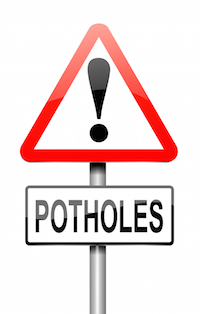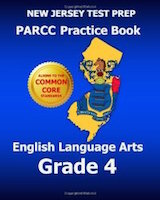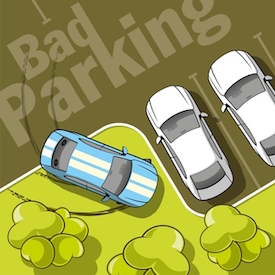March Madness and Crowded PARCCing Lots
 I love college basketball. The NCAA Men’s Division One Basketball Championship, otherwise known as March Madness, is right around the corner, and the excitement in the air is becoming quite palpable, as the teams head into The Big Dance.
I love college basketball. The NCAA Men’s Division One Basketball Championship, otherwise known as March Madness, is right around the corner, and the excitement in the air is becoming quite palpable, as the teams head into The Big Dance.
Unfortunately, there is a new March Madness in the air this year. It is permeating the hallways at school. It is already causing Internet mayhem, as our kids do their best to go with the flow. It is the looming PARCC testing that is quickly approaching here in New Jersey and a dozen other states. (Still others are coping with SBAC tests.)
Like people stuck in a traffic jam, the chatter is getting louder, in homes and schools across the nation, as a new March Madness approaches. My students can’t help but hear the horns blaring, at home and at school. They’re stuck in traffic too.
Horns are starting to honk more often. Fists are starting to shake (not to mention what some of the fingers are doing), but traffic isn’t moving. Nobody seems to be going anywhere; at least not any time soon.
March Madness is in full force…and it’s only mid-February.
When I think about the March Madness that I used to love, I picture loud arenas with screaming fans, and parking lots full of confused, disoriented drivers, all trying to figure out a way to escape the parking lot maze.
Hmm… PARCCing lots. Kind of works, doesn’t it.
Laugh we might, but my students are still taking the test.
The traffic jam

The new PARCC online testing, however, is not proving so valuable. Well, not from my view behind the wheel at least. In fact, it seems to be becoming more of a roadblock to learning. It’s one of the main causes of our state’s testing traffic jam – so much so that it’s very tempting to refer to it instead as a pile-up.
The goal of Traffic Jam (the game) is to move cars that are blocking your path out of the way. Once the puzzles start getting more complicated, the solution gets less and less obvious. If you try to jump too fast by moving the game pieces too haphazardly, you’ll never find a way out. To clear the jam and find the path takes careful thought, sufficient planning, and creative thinking.
All of these sensible steps seem to be missing in our PARCC (mis)adventure. The decision to field test a brand new, statewide student evaluation for one year, then promise “full implementation” the following year, was a poorly planned first move. (This NJEA story from January 2014 lays it all out. I’m sure teachers in many other states are also along for this ride.)
They’ve definitely paved paradise…
The PARCCing lot is getting more crowded and more confusing as we creep toward the “non-summative” PARCC test my students will be taking next month.
The non-summative test, it should be noted, contains a great deal of material that hasn’t been part of my own instruction yet. My students are very uncomfortable with this. They think it is completely unfair.
The kids have a lot of questions. We are all stuck in this PARRC space together, with too many questions and not enough answers. “Why do we have to take this?”
This is one essential question I simply can’t answer. It’s just too big and too confusing (much like some of the sample reading passages and writing prompts contained on the literacy portion of PARCC sample tests).
Some things I’m wondering about…
- Why are there 7th and 9th grade level reading selections on the 4th grade sample assessment? One non-fiction sample reading selection has a 9.2 reading level [partial sample above – see source PDF]. I have another fiction selection from the sample test that’s rated for grade 7.5. (I used this site to get “unbiased” reading level scores.)
- Why doesn’t the tab key work in the writing sections on the test? Organization of ideas is an important skill. Don’t the kids need the tab key?
- When am I supposed to teach the kids the math concepts and the writing process that is part of the “content portion” of PARCC when I am spending so much time showing them the features and format of the test?
Essential Questions about PARCC testing as a whole…
- What are the results actually being used for? I use student assessments to identify where my learners need support. I don’t use grades to assign a value to their worth as students (like the PARCC results are assigning me as an educator). My state started with the results carrying the weight of 30% in teacher evaluation and is now bouncing between 10% and 20. Nobody is sure what the outcome will be yet, but the screaming in the parking lot hasn’t subsided very much. (NJ Spotlight story in July; a different outlook in February.)
Why are the first year “full implementation” scores even going to count for anything other than gathering data about what does and doesn’t work within this new testing procedure? There seems to be an awful lot riding on these scores. I wasn’t trained in computer programming, but I understand the concept and the dangers of using faulty data to make high stakes decisions. As real programmers say, “Garbage in…Garbage out.”
- Why is my state planning to use more suspect data to assess teacher effectiveness? The data from the PARCC will be compared to the flawed data from the results of a pencil-and-paper based test taken last year. I only teach fourth grade math concepts, but even my students understand that you can’t compare apples to kumquats and expect reliable data in the first place.
- Why do the test scores of children who do not attend my school “count” in the scores that are used to evaluate and distribute district funding by the state? Shouldn’t they evaluate my school based on the kids who are taught by the teachers who work there?
- Why are children with severe learning disabilities, children who can’t read or write (or type on a computer) taking this test? Why are their scores included in statistical percentages that the state says are meant to assess student progress, and why do these results tie into decisions about state funding?
- What exactly is progress in the eyes of the people who are making the decisions? I am not privy to the specific test results of my students (nor do I hold a degree in statistical analysis), so the data that they do give me doesn’t really help me at all. Shouldn’t the results of a program, granted $186 million by the U.S. Department of Education as a part of the federal Race to the Top program, be useful to me? Perhaps not. After all, I’m just the teacher being held accountable for the results.
Help is on the way?
There’s no doubt I am one of many who are currently stuck in the arena PARCCing lot. Most of the cars are filled with unhappy drivers. It’s a mess.
While I’m stuck here, I need to start thinking ahead, looking for solutions. Staying stuck in the jam isn’t good for me, or for my students. So why not click over to the official PARCC website. Bet they have information that will help me figure out my next move.
Here’s the link to a teacher resource page. See if you can sort all that conditional and chronologically challenged language out. (For example, “Field testing for all operational PARCC items will occur in spring 2014.”)

Thank goodness it’s only February 2015. I’m sure all the useful information teachers need will be ready in time for “full implementation” next month…when the real Madness begins.
It’s going to be a bumpy ride…assuming we ever get out of the lot at all.






































So my question would be this….how do we insert teachers into the “revise and rewrite” loop for PARCC? If there isn’t a loop, how do we elevate the conversation so they create one?
Good question, Marsha! According to the PARCC site, there are “Educator Leader Cadres (ELC)…a major part of PARCC’s ongoing work to engage educators in the implementation of the Common Core State Standards (CCSS) and the development and implementation of the PARCC assessments,” but the link to information about this group doesn’t work…I wish I had more answers…I’m still sifting through an awful lot of confusion at that site :)